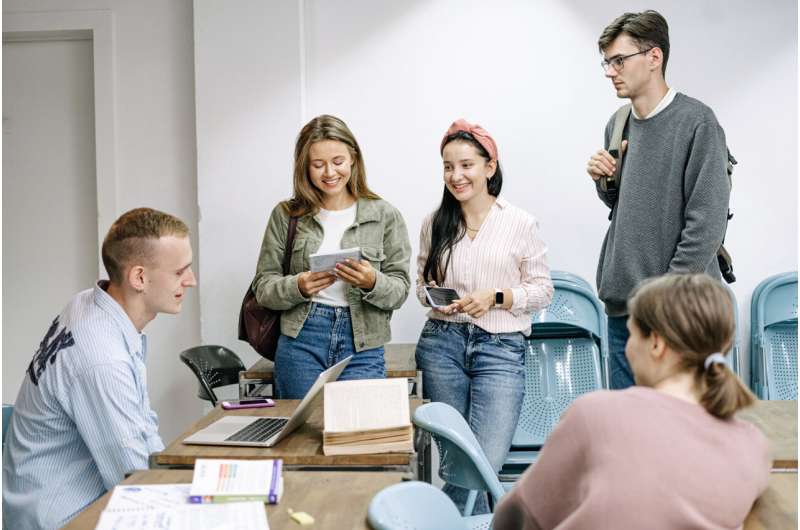How coronavirus could impact futures of students entering high school, college

School closures prompted by the coronavirus pandemic have sent families scrambling for solutions—balancing their work schedules with childcare and their children's needs for social stimulation.
As spring approaches, these widespread closures may have deeper ramifications for a particular group: students preparing to enter high school or college.
"These are transitions that, if students get the right support, can completely change the path that they're on," said Bridgette Davis, AM'16, a University of Chicago doctoral candidate who studies educational access and how underserved youth progress into adulthood.
Before joining UChicago's School of Social Service Administration, Davis taught and worked in Chicago and Atlanta public schools for more than a decade. Her current research follows 31 low-income students on the South Side of Chicago during their first year after high school.
The closures of schools across the country, she said, will likely precipitate a "widening gap" between low- and high-income students.
Families who already feel an economic squeeze from the COVID-19 outbreak may not be able to budget the hundreds of dollars necessary for college acceptance deposits. They also might need to rely on their children as an additional source of income, which could prevent some young people from attending college at all.
"The pressure for young people who are able-bodied to work is also going to be increased," said Davis, a research assistant for the UChicago Consortium on School Research. "I think some of our young people are going to be pushed to work, even right now during this process. If they start becoming breadwinners for their households, you can't undo that."
School closures also have separated students from teachers, counselors and other staff members who can support them during important developmental transitions. Low-income students might not have someone who can help them navigate college decisions—to decipher complicated financial aid packages, calculate out-of-pocket costs and weigh the best offer.
In addition, many students will be asked to balance their own needs with those of their younger siblings, becoming at-home caregivers for families who don't have another option.
In a recent survey of the 31 Chicago students whom she studies, Davis found that 67% are less confident that they can successfully finish their current college term. Those responses all came from students who were forced to leave on-campus housing—a potential sign of the responsibilities they will have to assume at home.
Minimizing these sorts of disruptions, she said, will require proactive steps. With important dates looming, families would benefit from regular e-mail or phone reminders of deadlines. In March and May, for example, Chicago Public Schools will offer seats to students who applied to selective high schools.
Teachers might consider uploading video lessons or posting lesson plans to help parents structure their days of homeschooling. Simple check-in calls also could provide students added emotional support.
"Young people are really eager to have someone contact them to see how they are, eager to talk through problem-solving," Davis said.
The current crisis, she added, only exacerbates current socioeconomic gaps. Schools already stretched thin by lack of funding might not have the resources to take on additional student outreach.
But given how disruptive the coronavirus outbreak has already become, even measures that might not be adopted by every family are worth pursuing.
"Sometimes we worry about, "If everybody can't do it, we shouldn't do it,'" Davis said. "But in this moment, we want everyone who can do something to take action."
Provided by University of Chicago





















